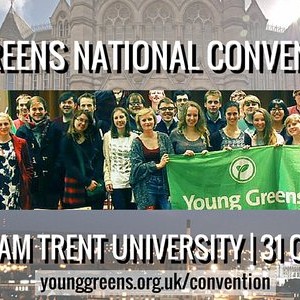#dayx closes, did it work?
As night ends the biggest day of civil disobedience in a generation, many will reflect on what it has achieved. While kettled in at Whitehall earlier today, I had a chat with group of students from an East London FE College. They had never been to a demo before, but being black and working class, they were only too accustomed to being mistreated by the police. They were asking the same question: “Do you think this has been successful?”. They were cold. They were hungry. They were fed up, and they had wanted to leave 3 hours earlier.

The same question emerged as we huddled round one of the many small bonfires to keep warm as we waited for the police to release us – ‘will this help us win the sympathy of the public?’. On the train on the way home, the woman opposite – very prim middle aged and upper middle class – surprised me by expressing her heartfelt support. But she asked the same question. Will this all help you win sympathy for your cause.
But this worry – do these actions help us win sympathy – seems to me to conflate two very different questions. Because the truth is that protesters do not need to win sympathy. Because we are not fighting for the rights of protesters, and we are not politicians. And students barely need to win sympathy. Because almost every extended family has one – whether in 6th form, or at university – whether a granddaughter, a son, a cousin or a niece.
Much of politics has become marketised in the last 30 years. You are either the kind of person who cares about this distant abstract problem, or the kind who cares about that one. If the people who care about this smash things up, misbehave, or shock, then more people are likely to choose to be the kind of person who cares about that.
But when the issue is as close to home as ‘can my child afford to get A Levels’ or ‘can my friend afford to go to University’, this isn’t about whether or not people empathise. It’s about whether they appreciate the scale of the problem faced by the students they know. And so the most important thing is not how the message is communicated, but how loudly.
I often think of those annoying adverts, expertly parodied on the Simpsons, where someone shouts repeatedly about some sale the company has on. They are annoying. You hate the person shouting. But you get the message – I can get this thing cheaper at that shop. And so it is with many sorts of controversial protest. Many will not support the form of action. But that doesn’t mean they don’t hear the message. And once they realise how this message impacts on the lives of those they love, the support will follow.
And so it was with the waitress who brought me my post-protest Pizza tonight. She was worried about her windows being smashed. She was cross with the protest. But she had decided that she opposed increases in fees ‘where will people get £9000 from?’.
So, to the students who spent a cold hungry day at Whitehall today; and to those bedding down on hard floors of occupied university buildings tonight, my answer is this: you are not politicians. You are not trying to win a personal popularity contest. You are helping thousands to see that their future, or their childrens’ futures, are being stolen. That’s a message we need to shout from the rooftops and into people’s ears. Because once enough people realise that, we truly can reclaim tomorrow.
So, yes, damn right, it worked. And the fight goes on.



Harry, Casper, thanks – I agree with everything you say.
Casper – yes, and, who turns up to the next one will depend on how much we get the message out that the last one worked, even when they don’t feel like they won support for themselves personally.
I think it depends how the marches are reported on in the press, and then who shows up to the next one. Already we’re seeing the Mail et al turn from the ‘kids are the future’ story to ‘vandals scare police’ + pictures of faceless aggressors.
The more this becomes the story, the less our beloved unusual suspects will turn out.
So I agree with Harry – these protests need to be woven into a larger narrative, which brings in their student identity, but where alliances are built with public sector workers, environmentalists etc.
The localising of the protests yesterday was certainly a good sign – hopefully this will lead to more organising and not only one-off, national actions.
http://caspertk.wordpress.com/2010/11/24/student-protests/
OK, I think you’re saying some pretty sensible things here by the way, and the NGO-style activist obsession with “messaging” and media image cewrtainly gets my goat. For a start, it misses the point of direct action, which is part of what you’re getting at here.
On the other hand, this shouldn’t just be a student struggle. Students have lit the touch-paper her — and I’m proud of them for it. But their struggle in opposition to fees can be the starting point os someting bigger. There are many more people — people with much less privilege than most student marchers, however many working-class and non-white students we find for our articles — who are suffering terribly from these cuts. So students need to be actively working to build cross-class resistance, finding ways to have solidarity with working class people, with workers, with benefit claimants, with families. And part of that might actually be — for once — thinking about how we win people’s support.